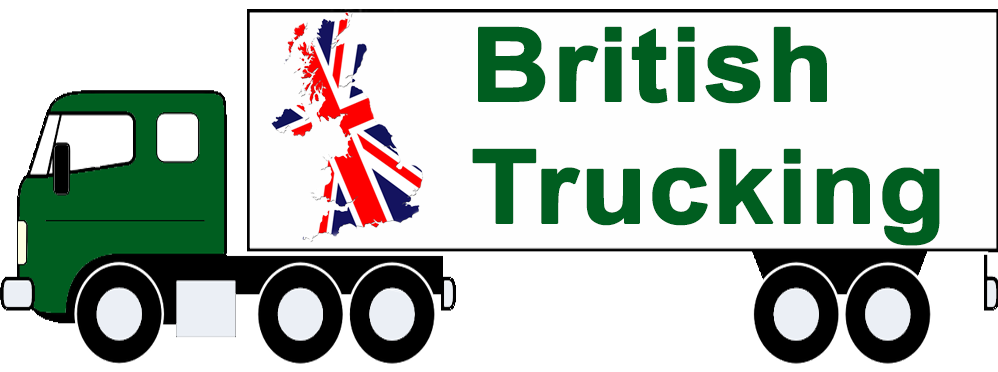Over recent years there has been a big decline in truck drivers in the UK, So why are so many truck drivers leaving the haulage industry? In this article, we take a look at some of the reasons that have not only caused drivers to leave the haulage industry but also had a significant role in deterring new drivers too.
The Main Reasons Why So Many Truck Drivers Are Leaving The Haulage Industry
Below I have highlighted some of the main reasons why so many truck drivers are leaving the haulage industry resulting in a massive driver shortage in the UK.
Driver CPC (Certificate of Professional Competence)
The driver CPC was introduced into the haulage industry under a European Directive in 2009 for lorry drivers, it was brought in to improve road safety and new drivers would need to complete an initial CPC qualification before being able to have a driver card allowing them to drive on the roads of the UK.
Qualified drivers would need to complete 35 hours of CPC training over a 5 year period to be able to keep their driver card, this qualification was not liked by truck drivers who would have to sit in a classroom for 7 hours and be charged to do so.
Many older drivers chose to not renew their driver cards when the CPC was due to be taken, this lost the industry many highly qualified and experienced drivers.
New drivers had to complete a four-part examination to enable them to drive a truck which increased the cost of passing an HGV test, this cost deterred new drivers and many would change their career paths because of it.
Overall I believe the CPC was the start of the decline of truck drivers coming into the industry and experienced drivers leaving.
Brexit
Brexit caused a driver shortage in the UK because EU workers were no longer able to work as they were in the UK. The problem with that was the remaining truck drivers were having to work much longer hours to cope with demand, this put pressure on truck driver’s family lives and ultimately many drivers decided to leave the industry.

The Coronavirus Pandemic

The coronavirus pandemic hit the UK in early 2020, when lockdowns were introduced people were panic buying goods, with an industry already short of truck drivers and overworked due to Brexit the pressure increased for truck drivers all over the country.
Truck drivers were told that they didn’t have to go into lockdown and were classed as key workers to keep the UK’s supply chain moving.
What happened next was a disgrace and demoralised truck drivers totally, they were finding that due to the pandemic, service areas were refusing drivers to use washing facilities, companies were refusing to let truck drivers use their toilets, I remember seeing a post on Facebook of a good Samaritan taking food that his wife was cooking to one of the truck stops just to ensure truck drivers were fed! the job became hateful for many drivers and many drivers lost heart and conviction to continue driving.
A combination of fear of covid, as well as being overworked, and treated poorly, caused many drivers to take early retirement or chose a different career altogether.
IR35 Changes April 2021
The changes to IR35 were introduced to tackle Tax and National Insurance avoidance, this meant that self-employed truck drivers particularly drivers who were set up as a Ltd Company would see a drop in their net salary due to an increase in tax and national insurance.
Self-employed drivers became categorised, genuine self-employed drivers could work outside of the IR35, but drivers who were classing themselves as self-employed but only working for a single company were categorised as disguised employees, this meant they would have to be taxed through PAYE and pay national insurance like any other company worker.
Companies were now in a position to determine a driver’s tax status using the HMRC government guidelines, this meant that drivers who worked for an agency then that driver agency would have to deduct PAYE income and national insurance accordingly.
This Tax change meant that many drivers across the country would be worse off as they were no longer classed as self-employed, their taxes were deducted at source so redeeming working costs became almost impossible.
The IR35 caused many foreign workers to return to their own countries as truck driving in the UK was no longer viable, also it discouraged drivers coming to the UK to drive trucks as they could see no benefit in doing so.
Wages and Working Conditions
Truck driving in the UK is a very poorly paid job for many drivers, wages have not gone up each year at the rate they should have with some truck drivers earning less in 2021 than they were 10 or even 15 years ago.
With no pay incentive and increased costs to maintain a truck driving licence with things such as a regular medical, paid for by drivers, 35 hours CPC course, paid for in many cases by truck drivers, loss of income when they have to do a CPC or go for a medical once again many drivers threw in the towel to seek work elsewhere.
Driver’s hours due to the shortage of truck drivers in the UK are at a maximum so much so the government extended truck drivers hours allowing them to drive even longer, this did not go down well with already overworked and underpaid drivers and many decided to also leave the industry.

Conclusion
In conclusion, there are many factors that have caused truck drivers to leave the haulage industry, many of these reasons could have been avoided if truck drivers were treated with the professional respect that they deserve. There is a lot of bad feeling amongst truck drivers right across the country and in my opinion, things will need to change drastically if the trucking industry in the UK is going to survive. New drivers need a reason to want to start trucking and experienced drivers need a reason to stay, better pay, and working conditions need to be addressed to make the job more attractive as a career option.
Thank you for reading this article “Why truck drivers are leaving the haulage industry” I hope you found it informative, if you have any opinions about the trucking industry in the UK leave a comment below with your thoughts. Keep it clean, please!




